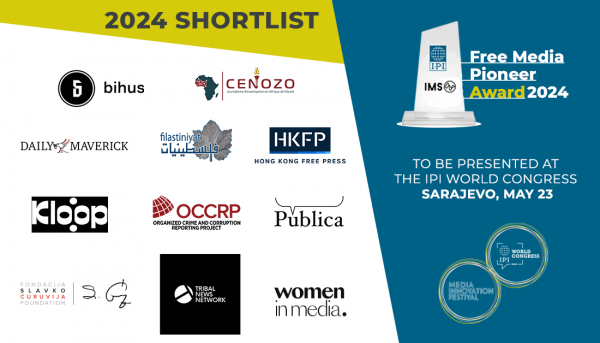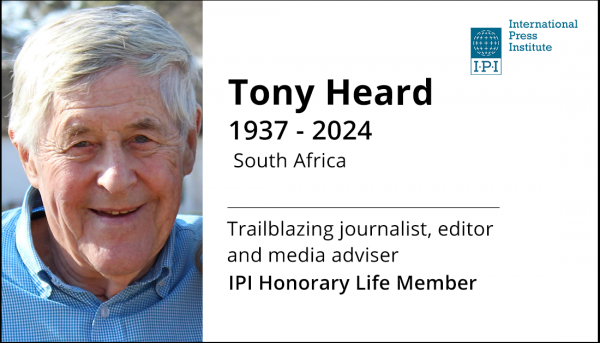The International Press Institute (IPI) on Sunday condemned in strongest terms the boycott on South Africa’s City Press newspaper called by the country’s ruling African National Congress (ANC) party. The call followed the publication by City Press of a review of a satirical art exhibition, which included a photograph of a painting showing President Jacob Zuma as Lenin, with his penis exposed.
“The call by South Africa’s ruling ANC to boycott City Press is an abuse of power and a form of harassment,” said IPI Executive Director Alison Bethel McKenzie. “On behalf of IPI, I condemn this behaviour in the strongest possible terms. Even more so as it appears to be part of a disturbing trend, which has resulted in an erosion of press freedom in one of Africa’s most respected democracies.”
According to local news reports, on May 24, the ANC called for a boycott of City Press until the newspaper removed the “insulting portrait” of President Jacob Zuma from its website.
“The City Press newspaper, by continuing to exhibit the offensive painting has clearly shown its collusion to the indecent depiction of President Zuma which violates his right to human dignity,” the ANC reportedly said in a statement.
“The City Press has therefore become a paragon of immorality, abuse and perpetrator of injustice and slander,” the ANC statement continued.
ANC Secretary General Gwede Mantashe called for the boycott as the party was making a court application to have a painting – The Spear by Brett Murray – removed from public display, City Press reported.
This followed a call by the South African Communist Party (SACP) General Secretary and Higher Education Minister Blade Nzimande to boycott City Press until the newspaper apologised for publishing a photograph of the painting.
The ANC government is supported by its alliance with SACP and the Congress of South African Trade Union (COSATU).
City Press Editor-in-Chief Ferial Haffajee, who is also a member of IPI’s executive board, said Nzimande’s call to boycott City Press “is deeply disturbing as he is usually a man of ideas and of debate.” ( Read Haffajee’s column on the boycott)
Noting that artistic freedom is protected by South Africa’s and international laws on freedom of expression and press freedom, IPI’s Executive Director Bethel McKenzie noted that, “any democratic country, including South Africa, has mechanisms in place to address violations of individual dignity. If President Zuma feels that the painting is insulting, he should bring this to the attention of the courts of the country and allow the courts to act independently and without pressure by other branches of the government.”
“A call to boycott the paper is an abuse of power, as it encourages illegitimate forms of administrative censorship and eventually leads to self censorship,” added IPI Press Freedom Manager Barbara Trionfi.
Over the past two years, IPI repeatedly protested at South Africa’s draft Protection of State Information Bill, commonly referred to as the Secrecy Bill. IPI noted that the law, if passed, would have a deleterious effect on investigative journalism in South Africa as journalists would face between five and 25 years in prison for revealing classified information.
IPI also expressed concern about recent calls for a statutory system to regulate media ethics, following criticism of how the Press Council of South Africa, an independent body, dealt with complaints against the media.


